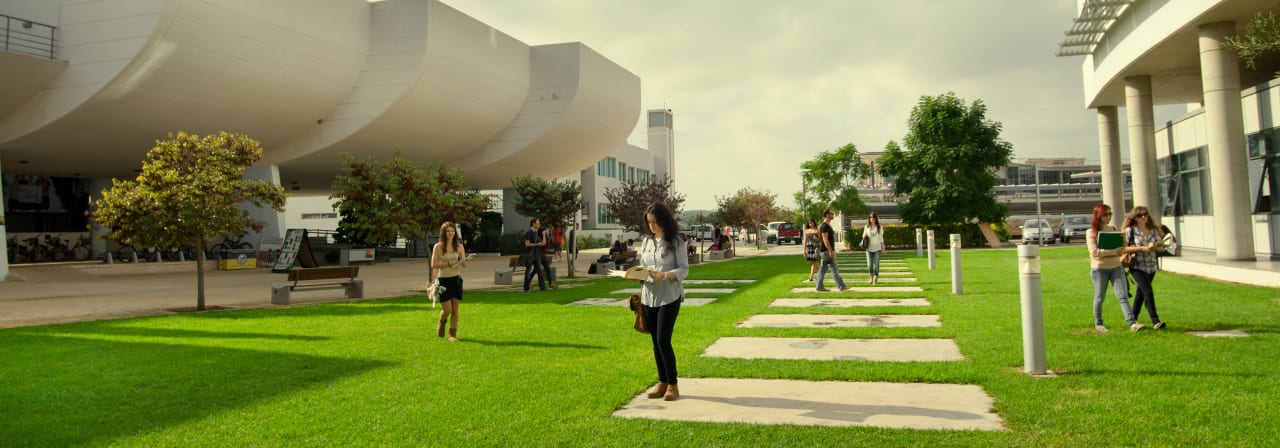
MA in Peace, Conflict, and Democracy
University of Cyprus

Key Information
Campus location
Aglantzia, Cyprus
Languages
English
Study format
On-Campus
Duration
18 months
Pace
Full time
Tuition fees
EUR 5,125
Application deadline
Request info
Earliest start date
Request info
Introduction
- The program is designed for students interested in understanding central issues and challenges in the interdisciplinary study of peace, conflict, and democracy globally.
- It is led by our award-winning academic staff in different regions of the world, signposting the global orientation of the program.
- It is taught by political scientists, sociologists, journalists, and anthropologists, exposing students to different disciplinary approaches to the study of peace, conflict, and democratic transformation.
- The MA program lasts 18 months (90 ECTS) for a total of three semesters.
- In the first two semesters, students will attend courses geared toward developing their theoretical, methodological, and practical skills.
- In the third semester, students will develop an independent research project (dissertation) under the supervision of an experienced faculty member.
Location
The program is situated in Nicosia, thus offering students a unique experience of peace and conflict studies in a safe research environment.
World-class faculty
Our academics publish findings of their cutting-edge, award-winning research in top journals in the field and have expertise in regions around the world.
Interdisciplinarity
Reflecting the unique interdisciplinary structure of the host departments (Political Science, Sociology, Journalism), the program will familiarize students with various disciplinary approaches to the study of peace, conflict, and democratic transformation.
Building your portfolio
The program offers a wide range of elective courses, including nationalism and ethnic conflict, radicalization, electoral engineering, peace journalism, topographies of conflict, and gender in conflict settings, thus enabling students to tailor their studies to their interests.
Visual Dissertation
Students will have the opportunity to produce an independent short documentary under the supervision of experienced academic staff in audio-visual media/film studies.
Small research groups
Student-led workshops are designed to support students' methodological skills, ethics training, and learning experience.
Gallery
Admissions
Scholarships and Funding
A number of studentships will be offered to the most competitive applicants.
Curriculum
Program Content & Structure
As part of their core courses, students will complete a dissertation (30 ECTS) and three mandatory courses (22,5 ECTS). In parallel, students can select up to five electives (37,5 ECTS) from a range of interdisciplinary courses, each exploring a different aspect of Peace, Conflict, and Democratic Transformations.
Core/Compulsory Courses (22,5 ECTS)
- SPS 619 Fundamentals of Peace & Conflict Transformation (7,5 ECTS)
The course provides a comprehensive introduction to fundamental theories of violence/conflict, transitional justice, peacebuilding, and post-conflict reconciliation. - Fundamentals of Democracy (7,5 ECTS)
The module is designed to introduce students to core theories of democracy and critically evaluate the contemporary challenges to democracy. - SPS 620 Applied Research (7,5 ECTS)
The course introduces students to the fundamentals of empirical research in the social sciences with a focus on peace and conflict research methodology.
Elective Courses (37,5 ECTS)
- SPS 621 Nationalism & Ethnic Conflict (7,5 ECTS)
The course explores key debates on nationalism and key writings on ethnic conflict, while also exploring different methodological approaches to the study of nationalism. - SPS 622 War & Peace: A History of Ideas (7,5 ECTS)
The course examines how central questions of war and peace have been addressed in the history of western political thought, by focusing on the ways in which elements of ideas of war and peace have undergone transformations to fit within certain contexts and historical developments over the past centuries. - SPS 623 Elections & Democracy after Conflict (7,5 ECTS)
The course is designed to introduce students to the challenges and dilemmas that post-conflict societies face in their effort to create inclusive political institutions. It covers a wide array of issues, including post-conflict electoral engineering, and the role of the international community in democratic transitions. - SPS 624 Topographies of Peace & Conflict (7,5 ECTS)
The course is designed to map and analyze the politics surrounding war and disaster zones, peace and ecological parks, military bases, buffer zones, de facto states, divided cities, indigenous homelands, cultural heritage, biocolonialism, and common resources. - SPS 625 Dynamics of Radicalism & Conflict in Democracy (7,5 ECTS)
The course covers a wide variety of radicalization processes in democratic settings. It aims to familiarize students with these processes and offer theoretical and analytical tools to better appreciate the dynamics of radicalization and critically appraise the methods used to study them. - SPS 626 Human Rights, Gender & Conflict Transformation (7,5 ECTS)
The course aims to develop students’ ability to understand the complex role that human rights and gender play in the development of pathways to conflict transformation, piece-building, and post-conflict democratization. - SPS 627 Reporting Peace & Conflict (7,5 ECTS)
The course examines the role of media and professional journalism in conflict/peace-building processes, the ethical dimensions of confrontational and peace journalism, as well as the broader impact of digital/social media reporting in deeply divided societies. - SPS 628 Special Topics in Peace, Conflict & Democracy (7,5 ECTS)
This is a course that showcases novel teaching themes offered by academic staff in the department and invited guest speakers. Each year the course explores a different topic in peace and conflict studies. - SPS 629 Internship (7,5 ECTS)
The course is geared towards improving students’ employability skills through a work placement at a local organization.
Compulsory – Dissertation (30 ECTS)
- SPS 632 Master's Thesis (30 ECTS)
Students are offered the opportunity to submit either a 15,000-word thesis in a written format or utilize the in-house experience and modern facilities of the home department to produce a visual dissertation in the form of a short documentary with a supplementary 5,000-word research paper.
Career Opportunities
The program is designed to develop employability skills and boost the career prospects of graduates. To this end, students will be able to engage in a research-oriented internship within a local organization.